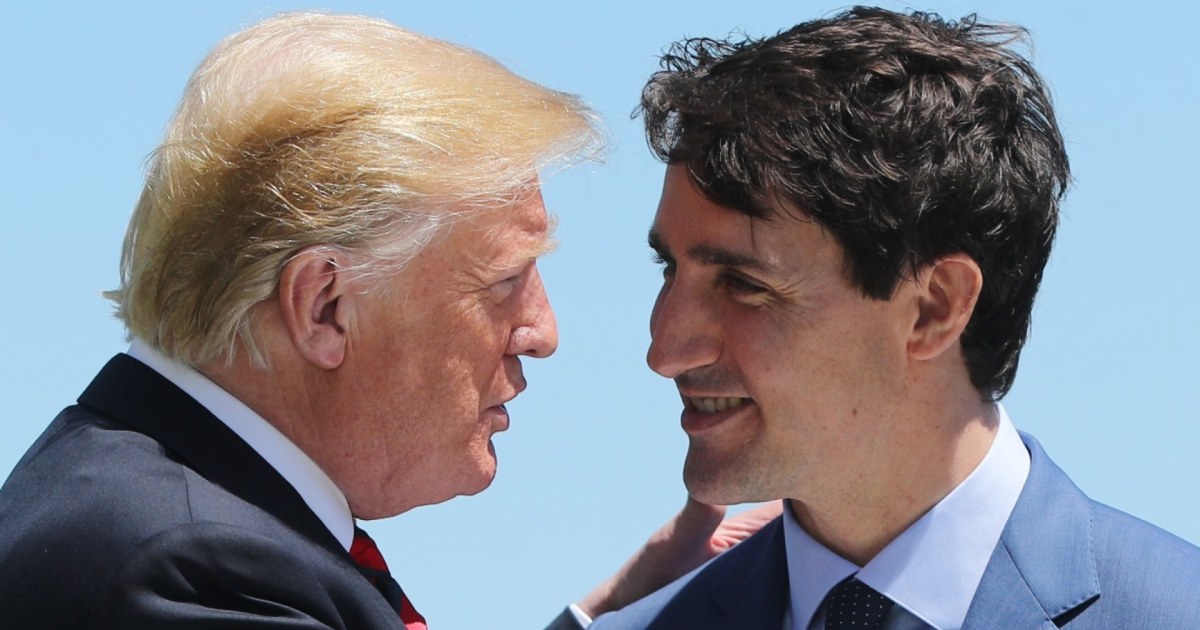Global Backlash: Canada, Mexico, and China Unite Against Trump’s Tariffs
In an unexpected twist in the world of international trade, Canada, Mexico, and China have formed a united front to challenge U.S. President Donald Trump’s controversial tariffs. This coalition not only signifies a shift in traditional alliances but also raises pressing questions about the future of global trade dynamics and economic repercussions. The implications of this coalition could reshape trade relationships and economic policies across the globe.
Understanding the Tariffs
President Trump has long championed the idea that imposing tariffs on imported goods would protect American industries and jobs. However, these tariffs, particularly on steel and aluminum, have drawn considerable criticism. Critics argue that such measures can lead to retaliatory actions from trading partners, ultimately hurting consumers and businesses in the U.S. economy.
The tariffs were initially justified as a means to protect national security and promote economic nationalism. Yet, the consequences of these tariffs have been far-reaching, affecting not just the targeted countries but also the broader international trade landscape.
The Coalition’s Formation
Canada, Mexico, and China’s decision to band together against Trump’s tariffs signals a significant shift in international relations. Historically, these countries have found themselves at odds with one another over various issues, from trade agreements to political alliances. However, the common threat posed by tariffs has catalyzed this unlikely partnership.
- Canada: As a significant trading partner to the U.S., Canada has been hit hard by tariffs on steel and aluminum. The Canadian government responded by imposing retaliatory tariffs on a variety of American goods, seeking to protect its own economy.
- Mexico: Similarly, Mexico has felt the pressure from U.S. tariffs, especially in the agricultural sector. The Mexican government has also taken steps to retaliate, further straining economic relations.
- China: China has been one of the most vocal critics of U.S. tariffs, viewing them as an attack on its economic growth. Beijing has implemented its own tariffs on American goods, escalating tensions between the two countries.
Economic Implications
The formation of this coalition against Trump’s tariffs could lead to significant economic implications for all parties involved. Here are some key points to consider:
- Retaliatory Measures: The coalition could lead to a new wave of retaliatory tariffs that may further disrupt international trade. Countries might start imposing tariffs on a broader range of goods, leading to an escalation in trade wars.
- Impact on Consumers: Increased tariffs typically result in higher prices for consumers. As countries impose tariffs on each other’s goods, the cost of everyday products could rise, impacting the average consumer.
- Global Supply Chains: Many industries rely on global supply chains. Tariffs disrupt these networks, causing delays and increased costs. Companies may need to rethink their supply chains, potentially leading to job losses in various sectors.
The Role of International Organizations
The World Trade Organization (WTO) and other international bodies may play a crucial role in mediating the disputes arising from these tariffs. Canada, Mexico, and China could leverage their collective power to bring cases against the U.S. before the WTO, arguing that the tariffs violate international trade agreements.
Moreover, this coalition could encourage other countries affected by U.S. tariffs to join forces, creating a broader network of opposition against unilateral trade measures. The collective action could strengthen the case for free trade and challenge the isolationist tendencies exhibited by certain nations.
Geopolitical Ramifications
This coalition also has geopolitical ramifications. The alignment of Canada, Mexico, and China may encourage other countries to reconsider their ties with the U.S. as they seek to protect their own economic interests. This shift could lead to a reconfiguration of alliances, with countries prioritizing economic partnerships over traditional political alliances.
Furthermore, this situation exemplifies the growing discontent with American hegemony in global affairs. Countries may feel emboldened to challenge U.S. policies, leading to a more multipolar world where power dynamics shift significantly.
Potential Solutions and Future Outlook
For the coalition led by Canada, Mexico, and China, finding a resolution that benefits all parties involved will be essential. Here are some potential pathways forward:
- Negotiation: Engaging in direct negotiations with the U.S. could pave the way for a de-escalation of tensions. This approach would require all parties to come to the table with an open mind and a willingness to compromise.
- Strengthening Trade Agreements: This coalition could look to fortify existing trade agreements, such as the United States-Mexico-Canada Agreement (USMCA) and explore new agreements that might offer mutual benefits.
- Public Awareness Campaigns: Raising awareness about the impacts of tariffs on everyday consumers could help galvanize public support for more equitable trade policies.
Ultimately, the coalition’s response to Trump’s tariffs could set a precedent for how countries navigate economic disputes in the future. As nations increasingly recognize the interconnected nature of global economies, cooperation may become more critical than ever.
Conclusion
The global backlash against President Trump’s tariffs, exemplified by the coalition of Canada, Mexico, and China, underscores the complexities of modern trade dynamics. While the immediate future remains uncertain, this unprecedented alliance may very well shape the landscape of international trade, prompting a re-evaluation of policies and partnerships worldwide. As the world watches closely, the actions taken by these countries could pave the way for a new era of trade relations, emphasizing collaboration over confrontation.
See more CCTV News Daily
